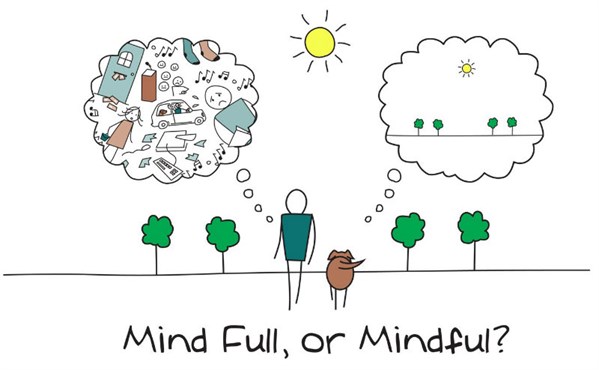Simple Relaxation Techniques for Adolescent Anxiety
07 Apr 2007 | Noah Smith

Being a teen is hard.
With the pressures of school and getting ahead in a competitive
environment, physical changes in the body, social pressures,
volatile friendships, and responsibilities around the home,
adolescents can find themselves feeling a lot of stress.
This is entirely normal, and it's something that everyone goes
through during these formative years. But in some teens the daily
stresses can be something more and chronic anxiety can develop.
This could be general anxiety, or anxiety focused on social
interactions, school, or specific phobias.
In order to be able to cope with an anxiety disorder, parents
and teens must learn some common relaxation techniques that are
simple and effective.
Focused
breathing
Coping with anxiety isn't easy, but sometimes it helps to just
stop and take a deep breath - or a few dozen. The simplest
relaxation technique you can practice is focused breathing.
One way to reduce stress is to take a deep breath, count to
three or four, and exhale slowly. This easy exercise can be done
for just a couple of minutes or longer if need be.
A specific way to make this more effective is to focus on
"abdominal breathing" as opposed to a more shallow chest
breath. According to breathing expert Dr. Alison
McConnell:
"With one hand on the chest and the other on the belly, take a
deep breath in through the nose, ensuring the diaphragm (not the
chest) inflates with enough air to create a stretch in the lungs.
The goal: Six to 10 deep, slow breaths per minute for 10 minutes
each day to experience immediate reductions to heart rate and blood
pressure."
Focused breathing is not something you should do only when
feeling an anxiety attacks coming on. Instead, it can be practiced
every day like an exercise.

Meditation
Meditation combines focused breathing with focusing on what's
happening right now, as opposed to past and future sources of
stress and anxiety. There are lots of different ways to meditate -
so you can try out a few different simple ways to meditate and discover what
works best for you.
Many find that using a mantra helps them stay calm and focused.
Simply repeating a word or phrase over and over again as one
relaxes and breathes slowly can be highly effective. You can search
for meditation mantras online or simply choose words or sounds that
mean something to you.
Some meditation practitioners likes to focus on visualisation,
or creating a calm, idyllic image in the mind. To do this, close
your eyes and begin to paint a picture in your mind of a calming
place. Fill in all sensory information. What does it look like?
Sound like? Smell like? This type of meditation can be very
effective in helping you drop the stresses of the real world for a
time.
Progressive Muscle
Relaxation
Anxiety is not all in your head. There are real physical effects
of high anxiety. Often those who are anxious don't even notice that
their muscles are tense and rigid due to their perceived stress.
Simply focusing on tensing and relaxing specific muscles groups can
greatly reduce anxiety - both overall and in the moment.
"Progressive Muscle Relaxation teaches you how to relax your
muscles through a two-step process. First, you systematically tense
particular muscle groups in your body, such as your neck and
shoulders. Next, you release the tension and notice how your
muscles feel when you relax them" says AnxietyBC.com.
By practicing these simple relaxation techniques both as a
routine and when anxiety rears its head, you can drastically reduce
its effects.
Also look for other ways to reduce stress. For example, if teens
are experiencing are social pressures, try to help them find
someone they can talk to about this. Or if they are struggling in
school, you could consider getting help from a tutor. If certain
external stresses can be alleviated, much of the teen's anxiety may
subside.
---
Noah Smith writes for Wellnessvoyager. Photo Credit: Pixabay.com